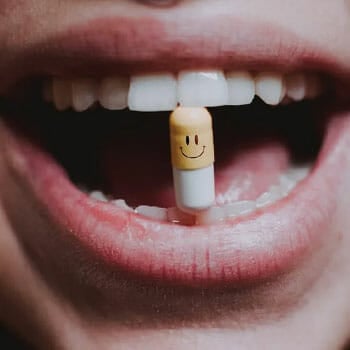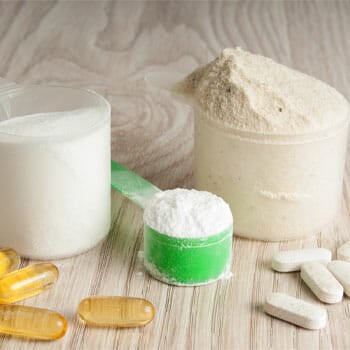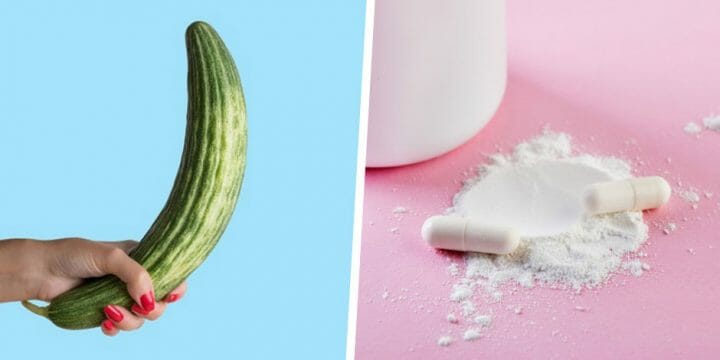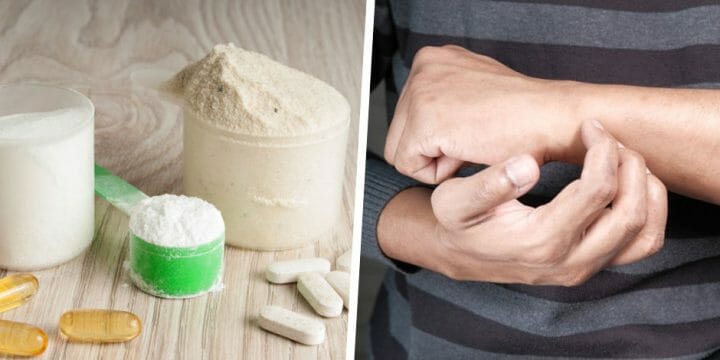Recognizing the potential risks, it's important to understand that excessive dependence on pre-workout supplements can lead to addiction and pose health concerns.
As a doctor and healthcare provider, I've thoroughly researched this issue to help my patients ensure sustainable energy without exclusive reliance on pre-workout products.
This article aims to explore the addictive nature of pre-workouts and provide guidance on achieving a balanced approach to supplementation.
Quick Summary
- Caffeine addiction can happen through frequent consumption of caffeine, which can lead to the blocking of adenosine receptors, providing a temporary boost in alertness.
- Relying excessively on pre-workout supplements can lead to dependency and potential health risks.
- A cup of coffee has roughly 95 mg of caffeine, while some pre-workouts boast 150 mg to 300 mg per scoop.
- As a doctor, my advice is to prioritize a balanced approach, incorporating whole foods, proper hydration, and strategic supplementation to fast-track any fitness goals.
Can You Get Addicted to Pre-Workout Supplements?

You can get addicted to pre-workout supplements because relying on high doses of stimulant-packed products can affect you in similar physiological patterns observed in drug or alcohol addiction, according to the National Institute of Health [1].
Furthermore, the same research suggests that caffeine tolerance is unlikely to occur at low-to-moderate doses (300 to 700 mg), but regular administration of high doses (750 to 1200 mg/day) can cause tolerance.
I've noticed that drinking more than two cups of coffee per day has made me crave it because of the increased energy levels and the good feeling it gives me.
What Are the Addictive Ingredients in a Pre-Workout Supplement?

There are certain addictive ingredients in pre-workouts, and one of the most commonly added is caffeine. However, the amount of stimulant varies by brand.
While some brands exceed the recommended daily dose, there are commendable supplement companies producing pre-workouts without excessive caffeine.
Consider blends that include l-citrulline, creatine, and beta-alanine. These ingredients enhance strength, intensity, and endurance without the drawbacks of caffeine overload.
How Do Pre-Workout Supplements Work?

If you're new to pre-workout supplements and wondering how they work, let's break it down. Pre-workout ingredients can be categorized into three groups:
- Stimulants: Typically caffeine, these boost energy, increase epinephrine levels, and enhance mood. (Other natural stimulants like B vitamins and taurine may also be present.)
- Vasodilators: Such as nitric oxide, these expand blood vessels, improving blood flow and nutrient/oxygen delivery to muscles and the brain.
- Cognitive enhancers: These reduce caffeine effects, aiming for enhanced focus and mental clarity.
Certain pre-workout supplements may contain a combination of one, two, or all three of these components to block muscle pain during training, promoting increased energy and concentration.
What Does Caffeine Do to Your Body?

Caffeine, found in tea and coffee, acts as a central nervous system stimulant in the body. According to WebMD, it blocks adenosine receptors, stimulating dopaminergic activity, increasing locomotor activity, and preventing fatigue [2].
While caffeine-packed pre-workouts have benefits, they can lead to side effects such as overstimulation, increased blood pressure, jitters, insomnia, headaches, and nausea.
Given the varying reactions to caffeine, starting with a low dose is a smart move to gauge your body's response.
Related article: Why Do Some Athletes Get A Pre-Workout Headache?
How Do You Develop Caffeine Addiction?

You can develop caffeine addiction through frequent consumption of caffeine, which can lead to the blocking of adenosine receptors, providing a temporary boost in alertness.
However, according to the National Institute of Health, this continuous exposure results in an increase in adenosine receptors over time, disrupting the balance in your brain [3].
Additionally, research from the National Consumers League indicates that most individuals typically consume less than 400mg of caffeine daily [4].
For context, a cup of coffee contains approximately 95mg of caffeine, while popular pre-workouts boast 150 mg to 300 mg per scoop.
Consuming these in addition to other caffeinated beverages increases the risk of developing tolerance.
What Happens When You Stop Taking Caffeine?
When you stop taking caffeine-based pre-workouts, you'll likely notice a quick decline in your workout performance if you've depended on caffeine for energy.
Habitual coffee drinkers and those who regularly consume caffeinated pre-workouts may develop physical, emotional, and psychological dependence on caffeine.
If you choose to quit abruptly, you'll probably experience unpleasant effects, with symptoms typically including changes in blood pressure and impaired behavioral and cognitive performance, to name a few.
Do You Really Need To Take Pre-Workout?

Some experts and fitness trainers claim that the best way to fuel your workout is through nutrition.
This makes sense, but energy-boosting foods like bananas coffee probably won't boost your performance like a scoop of a good-quality pre-workout supplement.
If you still want to use pre-workout supplements, try choosing the formula with safe ingredients.
"Also get some stimulant-free ones that you can use most days or just some plain old tyrosine which is a very good budget pre-workout"
- Matt Lovell, Sports Nutritionist
Related Article: Should You Use ED Meds as a Pre-Workout?
Final Thoughts on Pre-Workout Addiction
Stimulants have many positive sides, like enhancing performance, power, and stamina, but if you don't follow the recommendations, its effects can turn against you in the long run.
Ryan Hetrick, CEO of rehabilitation center Epiphany Wellness, say that long-term overuse of pre-workouts can lead to addiction, causing adverse health effects such as headaches, anxiety, and insomnia.
So, here's how to safely use pre-workout supplements:
- Choose products containing ingredients approved by the Food and Drug Administration. Although the FDA doesn't deal with the completed products' approval, what you can do is check whether they have approved the individual ingredients.
- Stick to product instructions and don't mess with the dosage. Too many scoops can send your body to overdrive, setting you up for an episode of fatigue later.
- Take time to study the information about the substances used in the pre-workout of your choice if you want to avoid serious health issues and developing caffeine dependency.
- Cycle off your pre-workouts. Cycling will improve your energy profile, reduce dependency, and get you back on track. If you decide to go cold turkey, you should get ready for caffeine withdrawal symptoms, which usually involve headache, drowsiness, and anxiety and can last from 2 to 9 days.
What are your thoughts? Do you think a workout without stimulants pays off? Share your experience in the comments below.
References:
- https://www.ncbi.nlm.nih.gov/pmc/articles/PMC3777290/
- https://www.webmd.com/vitamins/ai/ingredientmono-979/caffeine
- https://pubmed.ncbi.nlm.nih.gov/20164566/
- https://nclnet.org/caffeine_facts/
About The Author
You May Also Like






